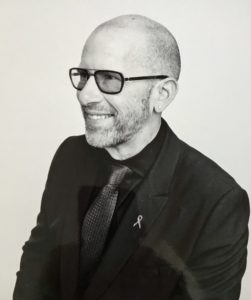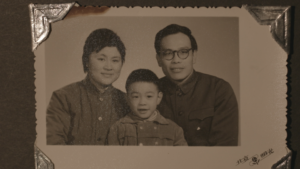An interview with Scott Elliott, Executive Director of the Dr. Peter Centre
- Nov 22, 2018
- /
- Blog

On November 30th, we’re screening BPM, in recognition of World AIDS Day and in support of community causes the Dr. Peter Centre and Positive Living BC.
We’re grateful to Scott Elliott, Executive Director of the Dr. Peter Centre, for answering a couple questions we had relating to the HIV/AIDS epidemic.
BPM is set in 1990s Paris. Can you provide some local history on the HIV/AIDS epidemic at this time?
In the mid-1980s, Vancouver experienced its first surge in the prevalence of HIV/AIDS, primarily among the city’s gay male population. For these men, at a time when homophobia and broad discrimination surrounding HIV/AIDS was rampant, the diagnosis was crushing. HIV diagnoses surged again in the mid-1990s when the method of transmission was becoming more complex and intravenous drug users made a significant amount of the new diagnosis. The epidemic in the 1990s was met with complicating factors – socio-economic constraints, cultural diversity and personal stability challenges intensified the infected population and their demand for care and treatment.
On September 10, 1990, Dr. Peter Jepson-Young, hosted the first of 111 weekly Dr. Peter Diaries on CBC-TV. For many people, the Diaries was the first introduction to someone with AIDS – and to someone who was openly gay. He demonstrated remarkable courage and inspired a generation to change the way they thought of people living with HIV/AIDS. He brought AIDS into the living rooms of Canadians helping to normalize and de-stigmatize the disease.
Before his death in 1992, Dr. Peter established the Dr. Peter AIDS Foundation with a mission to provide comfort care for people living with HIV/AIDS. Today, the Dr. Peter Centre is recognized locally and globally for its integrated model of HIV/AIDS health care.
And where are we at today?
Despite the incredible advances in HIV treatment, AIDS is not cured. Unlike Dr. Peter, who didn’t have the chance to benefit from the advent of our modern antiretroviral medications, the participants at the Dr. Peter Centre now have hope for the future. That is, if they engage in their healthcare, and that is our key goal, to have people engage in their healthcare.
For the first time in many years, we’re once again seeing people in their 20s with full blown Kaposi’s sarcoma. This is the skin cancer that was a defining mark of AIDS in the late 1980s and early 1990s. This younger generation hasn’t seen full-blown AIDS and for them it’s just not a reality. They don’t think the illness is real so they don’t take their medication.
As well, we are acutely aware that aging with HIV is creating new challenges. We are entering a new era where some survivors have been on medication for twenty and thirty years. This is uncharted territory for doctors and participants alike.
Stigma continues to be an acute issue even after all these years. There are also still legal battles, as someone with HIV can be charged under the criminal code for not disclosing their HIV status even if there is little to zero risk of transmission.
We know people are complex and more than their HIV status. Yes, everyone needs food and shelter – both services that we provide at the Centre – but people also want community and connection. They want the opportunity to explore their creativity and better understand themselves. To move on from their traumatic experiences, and to feel valued and loved.
Purchase tickets for the November 30th BPM event here.

About Reel Causes Society
Reel Causes partners with filmmakers and Canadian causes dedicated to addressing global social justice issues. We host film screenings followed by a Q&A session to educate and inspire our community, and provide a forum for authentic conversation aroundF the issues that affect us locally.











